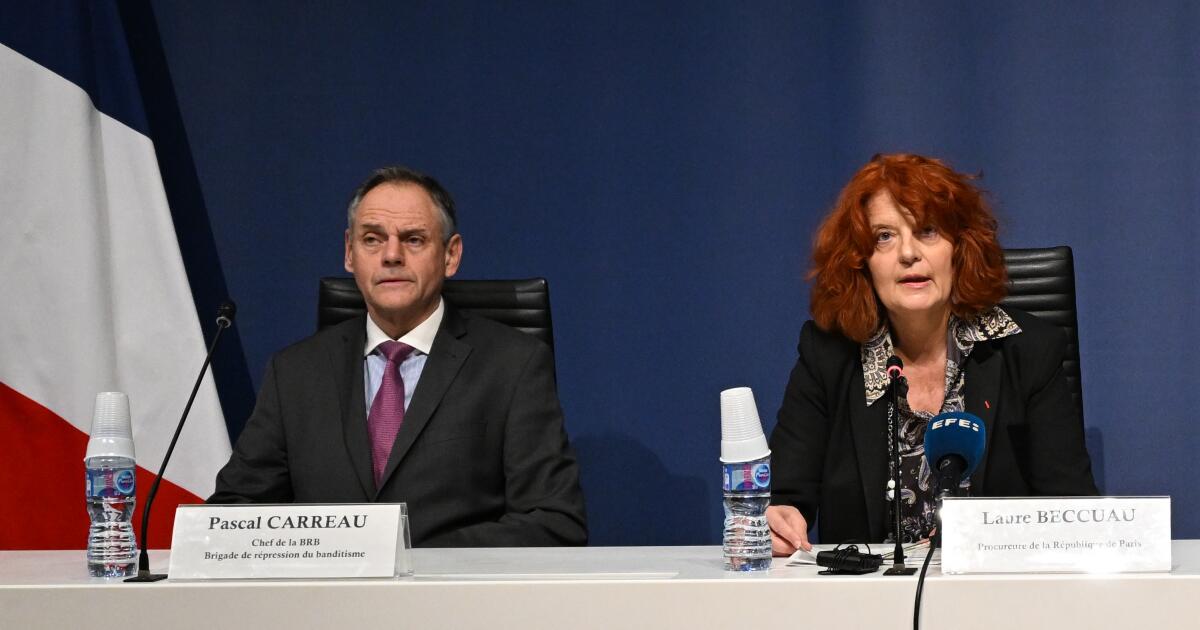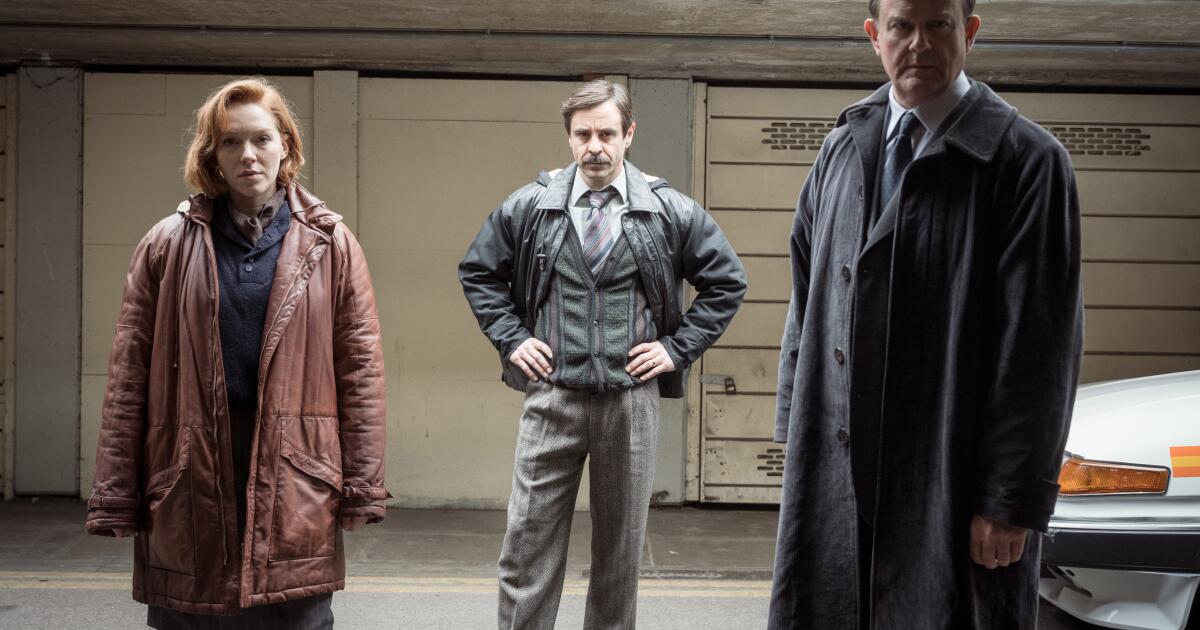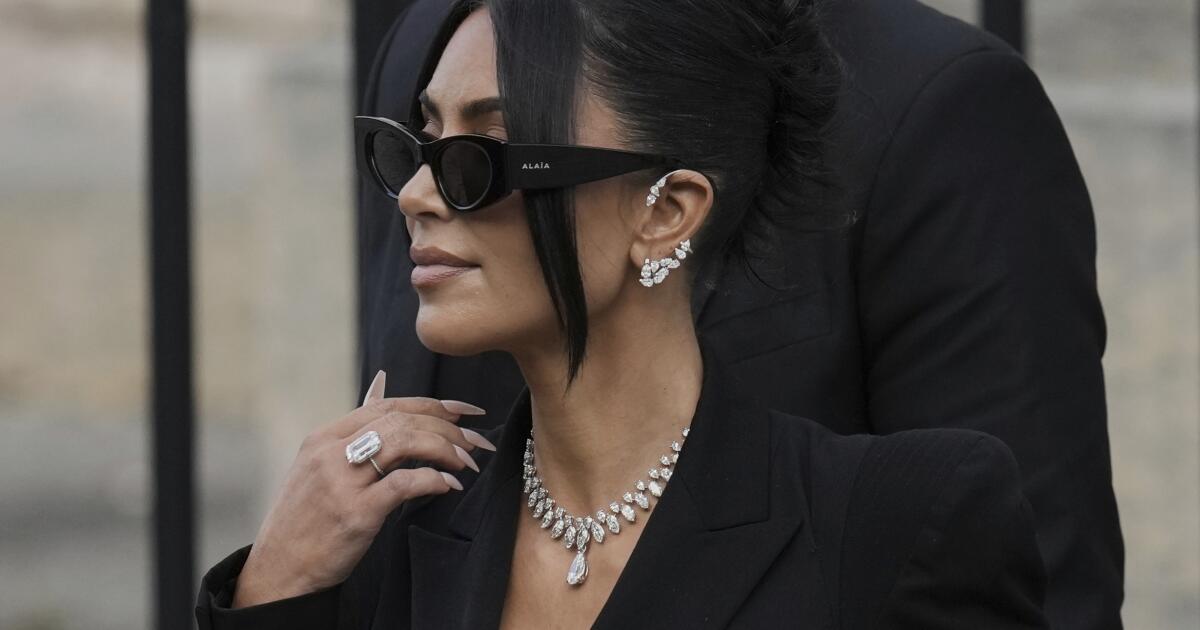2 suspects in Louvre jewel heist admit involvement, prosecutor says
PARIS — Two suspects in the Louvre jewel heist on Wednesday were handed preliminary charges of criminal conspiracy and theft committed by an organized gang, according to the Paris prosecutor’s office. The prosecutor said they admitted their involvement.
Prosecutor Laure Beccuau said at a news conference that the two are believed to be the men who forced their way into the world’s most visited museum Oct. 19, and that at least two other accomplices are at large. The jewels remain missing.
The two were given preliminary charges and ordered held in custody pending further investigation, the prosecutor’s office said in a statement.
They have “partially” admitted their participation in the robbery, Beccuau said. She declined to provide details about the suspects’ statements to investigators because accomplices were still being sought.
It took thieves less than eight minutes to steal the jewels valued at $102 million on Oct. 19, shocking the world. The robbers forced open a window, cut into cases with power tools and fled with eight pieces of the French crown jewels.
Suspects’ DNA was found
The two men arrested on Saturday night “are suspected of being the ones who broke into the Apollo Gallery to steal the jewels,” Beccuau said.
One is a 34-year-old Algerian national who has been living in France since 2010, Beccuau said. He was arrested at Charles de Gaulle airport as he was about to fly to Algeria with no return ticket. He was living in a suburb north of Paris, Aubervilliers, and was known to police mostly for road traffic offenses. His DNA was found on one of the scooters used by robbers to leave the scene, she said.
The other suspect, 39, was arrested at his home in Aubervilliers. “There is no evidence to suggest that he was about to leave the country,” Beccuau said. The man was known to police for several thefts, and his DNA was found on one of the glass cases where the jewels were displayed and on items the thieves left behind, she added.
Video surveillance cameras showed there were at least four criminals involved, Beccuau said.
The four suspected robbers arrived onboard a truck equipped with a freight lift that two of them used to climb up to the museum’s window. The four left on two motor scooters along the Seine River toward eastern Paris, where they had some other vehicles parked, she said.
Beccuau said nothing suggests that the robbers had any accomplices within the museum’s staff.
The jewels are still missing
The jewels have not been recovered, Beccuau said.
“These jewels are now, of course, unsellable … Anyone who buys them would be guilty of concealment of stolen goods,” she warned. “There’s still time to give them back.”
Earlier Wednesday, French police acknowledged major gaps in the Louvre’s defenses — turning the dazzling daylight theft into a national reckoning over how France protects its treasures.
Paris Police Chief Patrice Faure told Senate lawmakers that aging systems and slow-moving fixes left weak seams in the museum.
“A technological step has not been taken,” he said, noting that parts of the video network are still analog, producing lower-quality images that are slow to share in real time.
A long-promised revamp — a $93-million project requiring roughly 37 miles of new cabling — “will not be finished before 2029-2030,” he said.
Faure also disclosed that the Louvre’s authorization to operate its security cameras quietly expired in July and wasn’t renewed — a paperwork lapse that some see as a symbol of broader negligence.
The police chief said officers “arrived extremely fast” after the theft, but added the lag in response occurred earlier in the chain — from first detection, to museum security, to the emergency line, to police command.
Faure and his team said the first alert to police came not from the Louvre’s alarms but from a cyclist outside who dialed the emergency line after seeing helmeted men with a basket lift.
Faure urged lawmakers to authorize tools currently off-limits: AI-based anomaly detection and object tracking (not facial recognition) to flag suspicious movements and follow scooters or gear across city cameras in real time.
Former bank robber David Desclos has told the AP the theft was textbook and vulnerabilities were glaringly obvious in the layout of the gallery.
Museum and culture officials under pressure
Culture Minister Rachida Dati, under pressure, has refused the Louvre director’s resignation and insisted that alarms worked, while acknowledging “security gaps did exist.”
The museum was already under strain. In June, the Louvre shut in a spontaneous staff strike — including security agents — over unmanageable crowds, chronic understaffing and “untenable” conditions. Unions say mass tourism and construction pinch points create blind spots, a vulnerability underscored by the thieves who rolled a basket lift to the Seine-facing façade.
Faure said police will now track surveillance-permit deadlines across institutions to prevent repeats of the July lapse. But he stressed the larger fix is disruptive and slow: ripping out and rebuilding core systems while the palace stays open, and updating the law so police can act on suspicious movement in real time.
Experts fear that the stolen pieces may already be broken down and stones recut to erase their past.
Adamson and Corbet write for the Associated Press.


